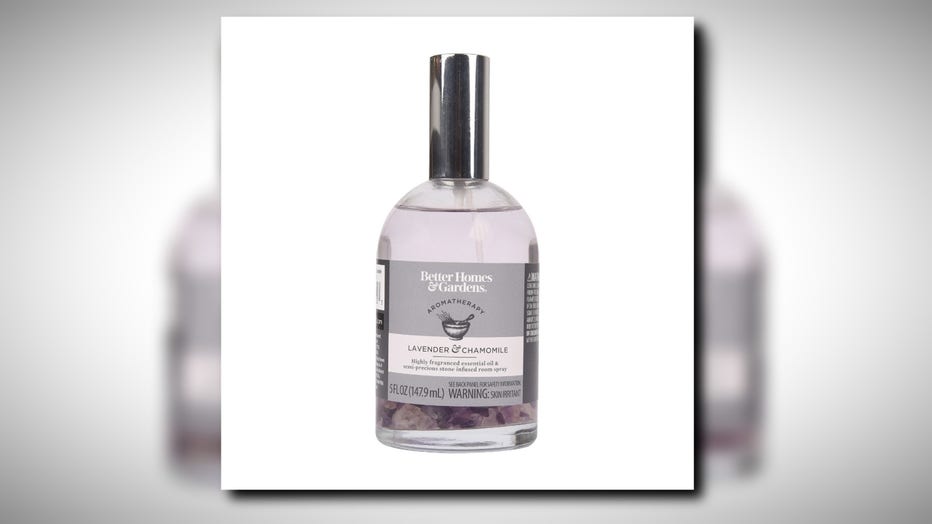CDC confirms link between melioidosis patients and aromatherapy spray sold at Walmart
ATLANTA - The U.S. Centers for Disease Control and Prevention (CDC) has confirmed the link between several melioidosis patients and an aromatherapy spray sold by Walmart.
According to the CDC, lab tests show bacterial strains of Burkholderia pseudomallei that match strains found in melioidosis patients from Georgia, Kansas, Minnesota and Texas. Officials said this confirms the spray or one of its ingredients caused the infections.
"When you think about the thousands of things people come in contact with around their homes, it’s remarkable we were able to identify the source and confirm it in the lab," said Dr. Inger Damon, director of CDC’s Division of High-Consequence Pathogens and Pathology. "CDC scientists and our partners found the proverbial needle in the haystack."
Walmart recalled roughly 3,900 bottles of Better Homes & Gardens Lavender & Chamomile Essential Oil Infused Aromatherapy Room Spray with Gemstones Oct. 22 — offering customers a full refund and a $20 gift card for returning the product.
RELATED: Walmart recalls aromatherapy spray after deadly bacteria detected
"We are committed to providing safe, high-quality products to our customers," Walmart said in a statement. "Our sympathies go out to the four families that have been impacted by this situation. Customer safety is always a top priority and as part of the recall we proactively put plans in action to notify customers and prevent further product sales while federal agencies continue their investigation."
The CDC wants anyone with the product to stop using it immediately and follow its instructions for a safe return. Do not pour the spray down a drain or throw it away, the CDC stressed.
The bacteria found in the spray is not native to the United States. Should it end up in a landfill or water supply, it could lead to future outbreaks of melioidosis.

Walmart recalled roughly 3,900 bottles of Better Homes & Gardens Lavender & Chamomile Essential Oil Infused Aromatherapy Room Spray with Gemstones Oct. 22 — offering customers a full refund and a $20 gift card for returning the product. (Sour
Also called Whitmore’s disease, melioidosis is an infectious disease typically found in tropical climates like Southeast Asia and northern Australia. It can spread to humans and animals that have had direct contact with a contaminated source.
Melioidosis can present as many types of infections — each with its own string of symptoms. Localized infections will cause pain or swelling at a particular spot, fever, ulceration and abscess.
Pulmonary infection can lead to coughing, chest pains, high fevers, headaches and anorexia. An infection in the bloodstream adds respiratory distress, joint pain, abdominal discomfort and disorientation to the list.
And a disseminated infection may cause fever, weight loss, stomach or chest pains, muscle or joint pain, headache, brain infection or seizures.
People suffering from underlying conditions like diabetes, liver disease, renal disease, thalassemia, cancer or chronic lung disease are particularly susceptible to melioidosis.
The disease is treatable, although it can take several weeks — even months — to recover. The CDC said treatment usually begins with intravenous antimicrobial therapy for at least two weeks. But it could be as many as eight weeks depending on the severity of the infection.
After that, a patient will start oral antimicrobial therapy for three to six months.
This story was reported from Atlanta.

